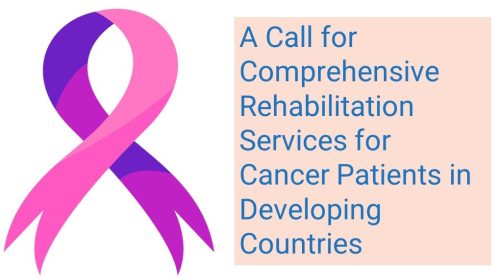In many places around the world, when someone is diagnosed with cancer, it’s not just their body that faces challenges. Their mind and emotions also go through a tough time. Dealing with cancer can affect energy levels, how they interact with others, and their overall quality of life. A new study has looked into the difficulties that cancer patients in developing countries face and how they can get better care.
The study found that many developing countries lack proper rehabilitation services for cancer patients. Rehabilitation services are essential for improving the lives of these patients, but in many low- and middle-income nations, these services are either not there or not good enough. The researchers carefully studied the challenges faced by cancer patients in these countries and explored how rehabilitation services could make a big difference.
The key findings of the study highlighted the need for better collaboration and partnerships between healthcare organizations and stakeholders worldwide. This collaboration is crucial to starting and improving high-quality rehabilitation programs for cancer patients in developing countries. The study stressed that international teamwork is necessary to address the multifaceted challenges faced by these patients, including pain, tiredness, emotional stress, and difficulties in doing daily activities due to cancer and its treatments.
Comprehensive care models that include rehabilitation have shown great improvements in the quality of life for cancer patients. However, the study also pointed out that many low- and middle-income countries are not providing these services well enough. The study’s message is important for the future of cancer care in developing countries.
By working to fix the gaps in rehabilitation services, there is a chance to significantly improve the quality of life for cancer patients. The study emphasizes the need for countries to join hands and for healthcare groups to get involved. Establishing and improving high-quality rehabilitation programs is crucial. This way, comprehensive care models can be put in place, helping to reduce the physical, psychological, and emotional burdens faced by cancer patients. Ultimately, this collective effort can lead to better health outcomes and improved well-being in developing countries.
Reference
Sumadi Lukman Anwar, Guritno Adistyawan, Wahyu Wulaningsih, Christoph Gutenbrunner, Boya Nugraha. Rehabilitation for Cancer Survivors: How We Can Reduce the Healthcare Service Inequality in Low- and Middle-Income Countries. Am J Phys Med Rehabil. 2018 Oct;97(10):764-771. doi: 10.1097/PHM.0000000000000982.

